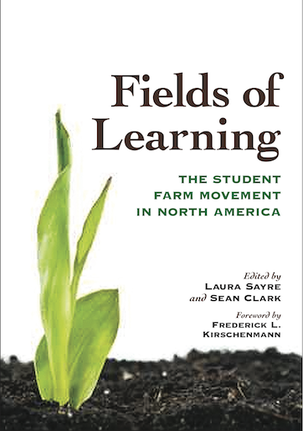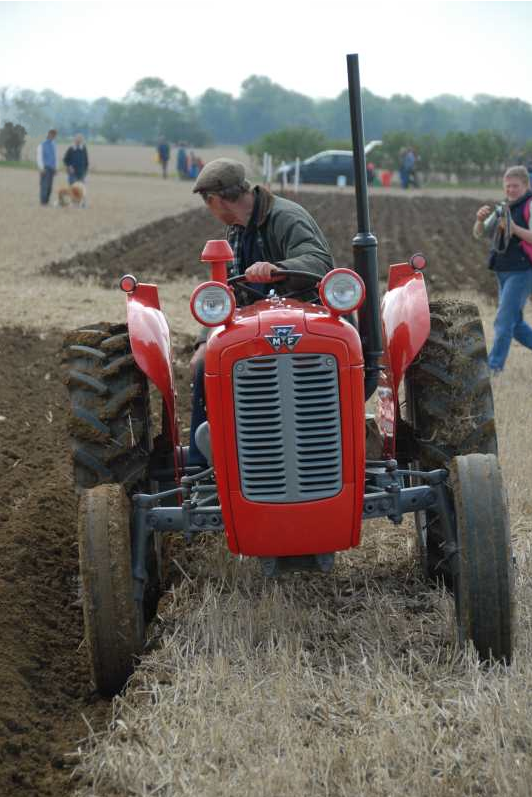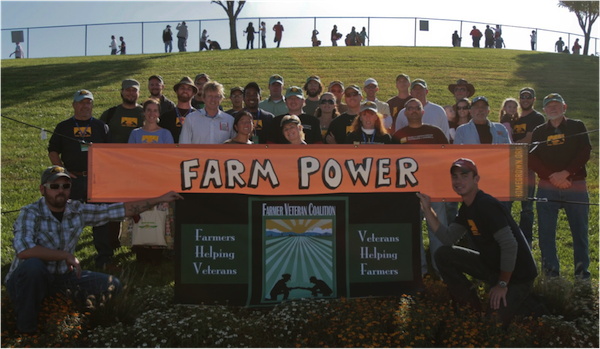Greetings. I'm an American scholar and writer based in France, where I'm a postdoctoral research fellow with the Département Sciences pour l’Action et le Développement within the Institut National de la Recherche Agronomique. My core research interests relate to the production and transmission of agricultural knowledge, the nature and causes of agricultural change, and the role and representation of agriculture within wider social and cultural fields. To understand these themes, I use the methods of history, ethnography and textual analysis. (To read more about me click here.)
Some recent news...
|
Fields of Learning: The Student Farm Movement in North America, which I co-edited with Sean Clark of Berea College, was published by the University Press of Kentucky in June 2011. It's earned praise from the likes of Gary Paul Nabhan, Gary Hirshberg, Wes Jackson and Joel Salatin. Even better, students and student farm managers at a number of schools have told us they've found it of real use in planning, running and/or making the case for new and existing student farm projects. Here's an overview of the table of contents:
Introduction - L. Sayre Berea College - S. Clark Wilmington College - M. Anderson and R. J. Stuckey Sterling College - J. Shipley Evergreen State College - S. Bramwell, M. Rosemeyer & M. Barker University of Oregon - A. Bettman University of California-Davis - M. Van Horn Hampshire College - L. & R. Coppinger University of Maine - M. Sarrantonio Central Carolina Community College - Robin Kahanowich Prescott College - T. Crews University of Montana - J. Slotnick University of British Columbia - M. Bomford New Mexico State University - C. Falk and P. Pao Michigan State University - J. Biernbaum Yale University - M. Shannon-DiPietro Conclusion - L. Sayre & S. Clark |
Agricultural History ReenactmentI'm currently working on a second edited book project, on "agricultural history reenactment"-- undertakings and situations in which various aspects of agricultural heritage are explored, invoked or put to use for specific contemporary ends. Living history farms and other kinds of agricultural and museums; "protected geographical indications" (such as Gruyère cheese, Parma ham, or Welsh beef); antique tractor clubs and other enthusiasts’ groups, competitions and fairs; reality television series focused on traditional foods and/or farming practices--all these and more testify to an enduring, even expanding popular interest in agricultural history. Indeed, agricultural history reenactment may be the most popular form of reenactment history after military reenactments. The book responds to an increasing inclination among academics to take reenactment history seriously, and poses questions such as: What do the lessons of agricultural reenactment have to teach us about reenactment history more broadly? What is the status of agricultural experimentation within agricultural reenactment? How have the terms of agricultural reenactment shifted as the number of farmers has declined?
|
"New Forms of Agriculture" conference a great success!Over 100 attendees braved the early Burgundian winter for two days of talks and sessions on alternative and emerging agricultural systems. Many thanks to everyone who helped make the conference happen--the conversations were inspiring, the atmosphere was collegial, and the food was delicious! In the coming weeks and months we'll be working on a follow-up publication highlighting Franco-American perspectives on agricultural transformation and innovation. Stay tuned.
|
Image credits: "Massey Ferguson 35" taken by and © Jim Allen at the Fairford, Faringdon, Filkins & Burford Ploughing Championships & Country Show; "Farm Power" photo © the Farmer Veteran Coalition, Davis, California. Used by permission. Banner photo by Laura B. Sayre.


